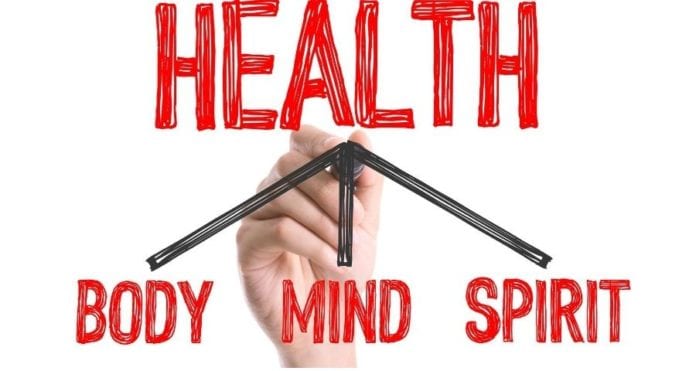Last Updated on July 23, 2020 by Shane Corbitt
The focus on mental health in recent years has grown, and for good reason. What we are coming to understand now that we previously overlooked is that caring for our minds is as vital and as necessary as caring for our bodies.
Just as our bodies suffer and decline without proper care, our minds do also. Thus, it is important for us to know about and utilize tools that will help us foster a healthy environment for our minds so that we can function optimally.
Meditation
Meditation is a practice of concentrated focus for the purposes of increasing awareness, reducing stress, promoting relaxation, and enhancing personal and/or spiritual growth. Through guided activities such as deep breathing or visualization, one is able to become more grounded in the present, more self-aware, and better able to cope with stress in their lives.
A study published in Psychiatry Research: Neuroimaging looked at the brains of 16 people who had never previously meditated and then reexamined their brains after the completion of an 8-week meditation program whereby participants spent 27 minutes on average each day practicing mindful meditation (Ahuja, 2017).
When researchers examined the brains of the participants after the 8-week mediation program period, they found that there was an increased grey-matter density in the hippocampus. The hippocampus is the area of the brain linked to learning, memory, self-awareness, compassion, and introspection.
Additionally, the size of the amygdala was reduced which is significant because that is the portion of the brain that controls anxiety and stress (Ahuja, 2017). These results demonstrate that meditation can be a powerful mental health tool to fight anxiety and stress and help people better cope with their surroundings.
Minimize Stress
Stress can be detrimental to our mental health. Research had linked stress to mental health conditions such as anxiety, depression, psychosis, and PTSD (post-traumatic stress disorder), among others. Stress also causes a physical response in our bodies characterized by an increased heart rate, rapid breathing, and tense muscles.
When this stress response is triggered long-term, this can prove to be problematic. In many instances, this prolonged stress response negatively impacts the heart, immune system, metabolic functions, hormones, emotions, and mental capacity.
Additionally, memory loss and the destruction of brain cells can both be side effects of prolonged exposure to stress (Transforming Mental Health, 2016). Thus, active measures must be taken to help cope with daily stress. Techniques such as breathing and journaling can help to deal with negative stressors and minimize the impacts stress has on the mind and body.
Limit Social Media
While social media certainly has its benefits, it also has its downfalls. Some research has looked into social media and its impact on users and that research has found its effects to be increasingly more negative on mental health than we may have thought. In one study from researchers at the University of Houston, surveys of college students found links between time spent on Facebook and depressive symptoms.
More specifically, more time spent on Facebook led to more comparison which in turn led to more depressive feelings, particularly for males (Pappas, 2012). Another study presented at the annual conference of the British Sociological Association in 2015 found that people with mental health conditions reported that while social media did give them feelings of being part of a community, it also exacerbated their anxiety and paranoia (Pappas, 2016).
These findings demonstrate the need to find balance when it comes to social media use. By setting healthy boundaries and limits for ourselves we can decrease the chances of experience negative mental health impacts like anxiety and depression. Plus, we get to enjoy the positives social media offers such as connectivity and community without the anguish of negative mental health effects.
Exercise
The body and the mind are linked in many ways so it is natural that physical exercise, which is good for the body, would also be healthy for the mind. A 2014 review included in the Journal of Clinical Psychiatry found a link between increased physical activity and reduced depressive symptoms in people suffering from mental illness.
The same study also found a reduction in the symptoms experienced by those diagnosed with schizophrenia (Rosenbaum et. al., 2014). A study published in the journal Acta Psychiatrica Scandinavica in 2014 noted that the addition of a physical exercise program to the treatment plan of patients with post-traumatic stress disorder reduced the symptoms of those patients.
The patients also saw improvements in their sleep patterns (Rosenbaum, 2014). These studies and others like it demonstrate the valuable link between caring for our bodies and minds. When we engage in physical wellness the mind benefits greatly.
Our minds are a vital organ within our bodies that must be cared for just as much and as purposefully as any other part of the body. We have much more control over our mental health, and we must start making it a priority if we want to facilitate and maintain mental health. When our minds are at their best we can be at our best, and that is a win-win for everyone.












